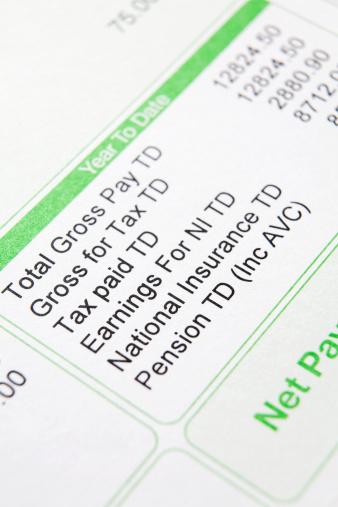Trust and Estate Tax Bracket 2020
Before I begin to explain the amount of money that is included in the tax bracket for trusts and estates for the year 2020 I will explain a few things about what it entails as I believe that many Americans just see this listed on their tax sheet and have never considered if they can take advantage of it.
In simplest terms, a trust is a fiduciary relationship between three different parties in which the head of the trust transfers property or assets to a second party for the benefit of the third party or beneficiary.
An estate, as defined by texts of law, is the amount of money a person has accumulated whether he is alive or dead. It is the sum of all of the assets, property, legal rights, and any other source of income he has or is still accumulating.
Trusts and estates have to pay taxes on the amount of income that they earn. Even if the person who owns the trust or estate is dead, taxes have to be paid. Any and all income must be reported to the proper authorities by the person who is controlling the trust or the estate.
Same as in individuals and married couples who file annual tax reports, so do trusts and estates. They pay different taxes depending on the amount of money that they report on a yearly basis.
In many cases, money that you inherit or are given through a trust will never have to pay taxes, such as when you are given stocks by a family member. You don’t have to pay taxes on those stocks until you sell them.
Same goes for real estate, nothing is paid in taxes until it is sold. You have the option of paying income tax on interest right now or postponing the bill until you cash in the real estate or the bonds that you might have inherited.
A trust needs to file a return if it has a gross income of more than $600 year during the full tax year or if there is any taxable income. Another reason why you might need to file a return on a trust is if there is a nonresident alien beneficiary.
An estate needs to file a return if it also has a gross income of $600 or more or if a person in the estate is a nonresident alien beneficiary. The category where you will find trusts and estates is the K-1, 1041 income report.
Income taxes are only paid if the assets inside the trust or estate are distributed among different parties. Capital gains and losses stay in the trust as they are part of the whole, this can be arranged to be distributed but it needs to be mentioned in the constitution of the trust.
You must also explain in detail how the trust must be divided and report all income on the 1041. The amount each person gets must be shown. It is important that every one of these dividends is shown to the IRS.
Trusts and estates also have a tax bracket on how their taxes work. As they function in a completely different way than regular individual taxpayers and married couples they have different columns depending on the amount of taxable income.
If the taxable income in your trust or estate is under $2,600 then you are taxed for 10%. You can see that the amount that is taxed for trusts and estates is much lower than those in the other tax brackets.
Taxable income that you get from your trust that is anywhere between $2,601 and $9,450 is taxed by calculating $260 plus 24% of the amount over $2,600. The next column is for people who hold trusts and estates and have a taxable income of $9,451 to $12,950, you will have to pay $1,904 plus 35% of the amount over $9,450.
Finally, the last column of the tax bracket for people who are in trusts or in an estate which is for those who make more than $12,951 have to calculate $3,129 plus 37% of the amount over $12,950.
By these numbers alone you will see how beneficial it is for your tax planning to have a trust or an estate. While other tax brackets reach their final column with $518,000 and a 37% income tax, trust reach it with $12,750.
For joint married couples the amount is $612,350 divided into two if they are filing separate reports. Few Americans know that they can use trusts and estates for lowering their taxable income, among other things.
Trusts and estates can be used to benefit your children. It is a huge misconception that trusts and estates are only for the rich. There is a lot that goes into establishing a trust or an estate so don’t hesitate to send us a message so we can help you establish the trust or estate that best fits your needs.
I hope you’ve found this article on trusts and estates and their tax bracket for 2020 to be helpful. For more information, or for assistance in international tax












Leave a Reply
Want to join the discussion?Feel free to contribute!